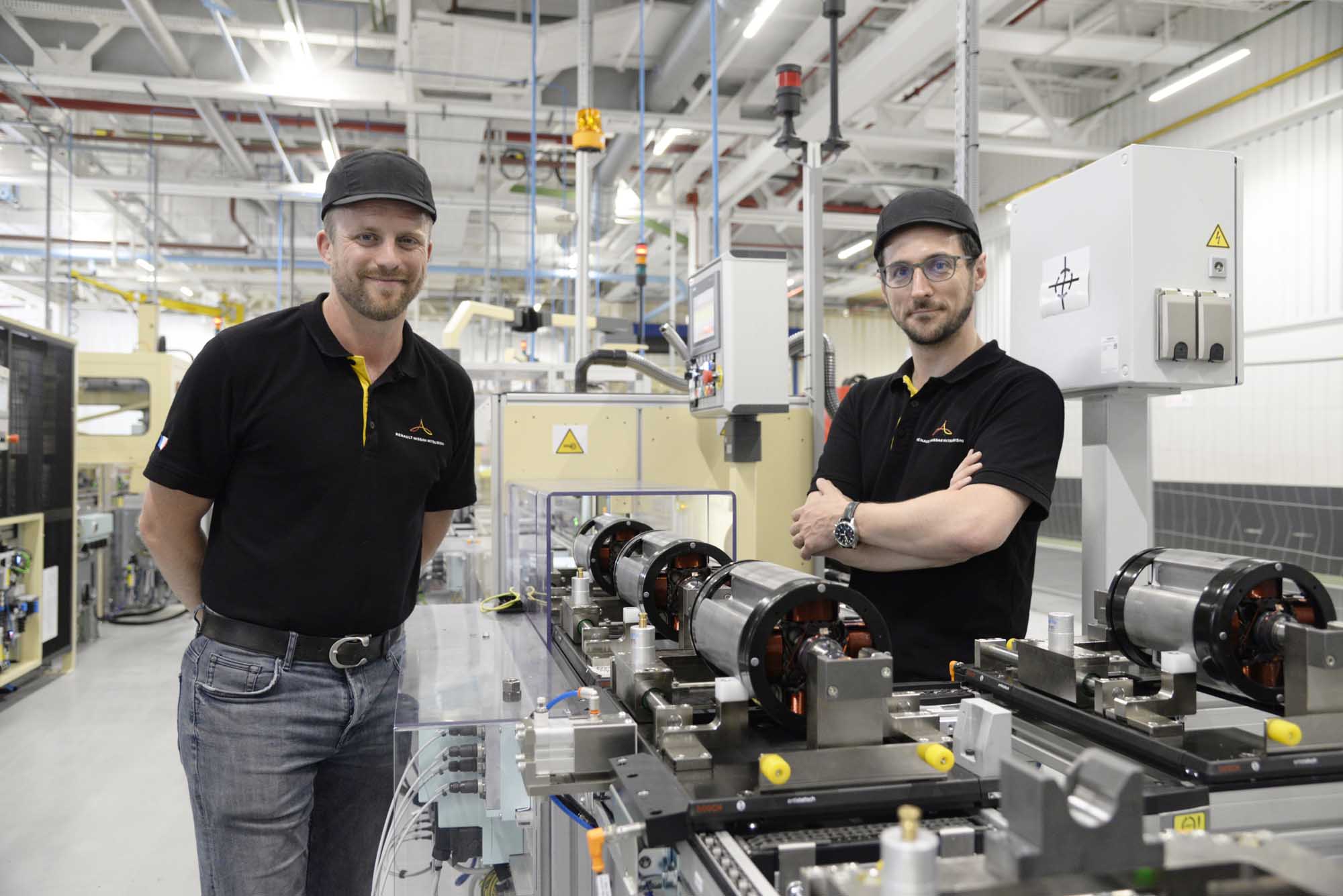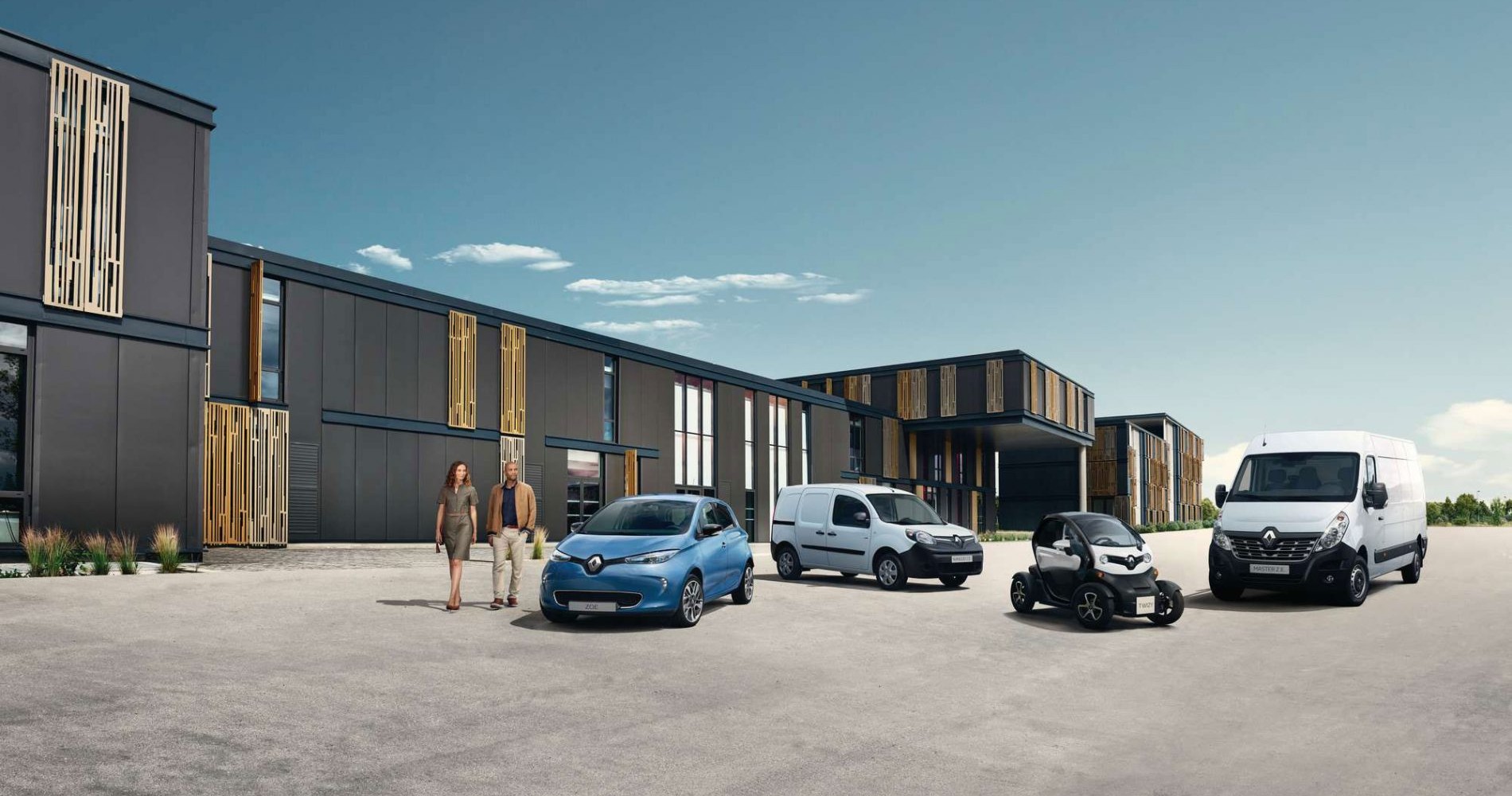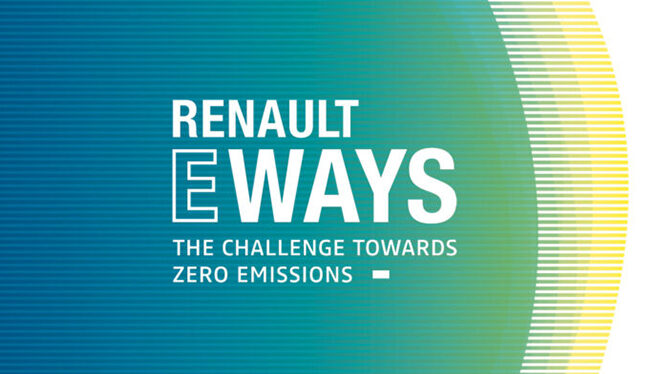

Is the New ZOE motor still 100% made in Cléon ?
Guillaume Faurie: Absolutely! We control the entire manufacturing process, from the foundry through the machining all the way to the final assembly of the main components: the electric motor, the power electronic controller and the reducer. For the manufacture of this new model, we relied on our prior industrial experience while continuing to develop the skills that electric motors call for. The differences between them and the manufacturing of the internal combustion engines traditionally produced at Cléon are quite significant. Manufacturing an electric motor calls for complex technical processes such as coil winding, coil impregnation and electric performance tests.
Louis Richard: For New ZOE, it’s not just the motor that is 100% Cléon. We also manufacture the electronic control unit dedicated to DC (direct current) fast charging up to 50 kW, which supplements the AC (alternating current) fast charging capabilities up to 22 kW which the previous model came with. We were able to bring this customer-focused innovation up to an industrial scale at Cléon thanks to the expertise we accumulated during the development and manufacture of the power modules for previous generations of ZOE.

Have manufacturing methods and processes evolved since 2015, the year that Cléon started producing electric motors ?
G.F: We are continuously looking to improve our processes. Each and every day we learn from how our plant machinery is running in order to bolster our performance. At the same time, our teams of experts in charge of manufacturing are constantly seeking to develop and incorporate new technologies into our processes.
L. R: Technological innovations drive us to be constantly adapting. The inclusion of ADAS (driver assistance) technologies and new multimedia equipment onboard New ZOE required our research department to develop new communication protocols for the car’s various computers. These innovations impact not only the motor’s overall functioning, but the manufacturing process as well: the configuration of our test benches and quality controls had to be adjusted accordingly.
What kinds of technical hurdles did you have to overcome?
G.F: The manufacture of a wound-rotor synchronous motor requires dedicated coil winding and impregnation processes. The constraints of product performance expectations, the goal of reducing the weight-to-power ratio and the fast rate of production require us to effectively employ the most state-of-the-art technologies to perform those processes. Working closely with our industrial equipment suppliers is essential for everything to happen in an optimal manner.
L.R: Among our challenges, providing high quality products to our customers is our number one priority. They expect an electric car to run silently while providing peak performance. To achieve that, we employ experts from a whole host of skilled industrial trades to work together on all parts of the drivetrain: from specialists in the machining of mechanical parts to assembly and quality control professionals, in addition to acousticians. We never stop improving the quality of our products.
G.F: In this context, training plays a key role for all the jobs in our plant. Our production engineering teams are trained by both in-house and outside technical experts through practical design of experiments or advanced theoretical studies. As for manufacturing operators, they receive specific training on new industrial processes to ensure our industrial excellence.

How is the Cléon plant supporting the rise of the electric vehicle ?
G.F: Between 2017 and 2020, our electric powertrain production capacity will have increased by a factor of 6. This growth is due to both the optimisation of our production facilities and the addition of new production lines. The majority of the 200 new hires expected at Cléon in 2019 will focus on our electric-related activities.
L.R: Our increase in capacity goes hand-in-hand with an expanded range of products. Today, our production lines are flexible enough that we can produce 5 electric motor models for Renault as well as our top-tier industrial partners. In the next two years, that number should grow to 8!
Copyright : Communication Usine Renault Cléon






